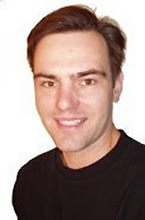Judge for Yourself!
Judge William G. Young has issued a 43-page court Memorandum condemning me as a “rogue.” Ordinarily, I wouldn’t care about such name-calling. But there are a number of factual falsehoods in his little memo about me, and I want to set the set the record straight here:
Falsehood #1:“The Court …[asked jurors] … 1) whether he or she believed he or she could faithfully apply the law as instructed to the facts of the case; and 2) whether he or she could begin their deliberations afresh if a juror had to be removed and replaced by an alternate…. All the jurors, save Juror No. 2, answered both questions in the affirmative.”
False. I answered both questions in the affirmative. Only after answering both of his questions in the affirmative did I volunteer that I was the one about whom all the fuss was being made. Earlier in the Memorandum, the judge reports that I “immediately informed the Court that he was the juror who had asked the first juror question and who was the subject of the second and third questions.” That’s not quite true, because I answered both questions in the affirmative before volunteering the latter information. The court transcript, which to this date I haven’t seen, should bear my side out.
Falsehood #2:“Juror No. 2 [Tom Eddlem]'s express representation that he would not follow the law as instructed constituted good cause for removal.”
False. I never said I wouldn’t follow the law. To the contrary, I repeatedly stated that I was bound by my oath to judge the “according to the facts and the law as the judge presents.” Some people might argue that I was defying the judge in this case, but a careful examination of the oath would reveal that the oath requires me to follow the law. The oath presumes that there is some real, tangible and independent thing called the law that exists independent of what the judge may or may not say. I’ve detailed this for an upcoming column on LewRockwell.com here. In fact, in this case the judge did a fair job explaining the law. Only when he began making political arguments – as opposed to legal ones – did I resist.
Falsehoods #3 and #4:“The Court spent several minutes attempting to explain how Congress had the authority to ban drug possession but continued to receive evasive responses.”
False, and again false.
First, the judge made no attempt to explain that Congress had the legal authority to legislate on drug possession, other than a mere statement that it was included under the commerce clause. In effect, it was a “because I said so” statement. If my understanding of the commerce clause of the Constitution was mistaken, then the judge never expended any effort whatsoever to convince me that I was mistaken. The only genuine effort he made was to try to make me swear an oath to ignore the clear wording of the Constitution. Specifically, the oath I was required to swear (and was removed from the jury for refusing to swear), was: “Would you be able to set aside your own reading of the Constitution, the judge’s past instructions and judge the facts based solely upon the judge’s explanation of the law?”
If he was of a mind to, and there was legal evidence I was wrong, he could easily have convinced me that my reading of the “commerce” clause of the U.S. Constitution was wrong. He could have simply picked up a dictionary – any dictionary – and shown me that my understanding of the word “among” in the commerce clause was mistaken and that “among” really is a synonym for “within.” Or, he could made an historical argument by quoting James Madison or one of the authors of the Constitution to the effect that they intended to regulate commerce within, rather than merely commerce crossing a state line. I would have given him the benefit of any doubt, but the judge did not take the trouble to do any of these things. Therefore, I suspect he didn’t make the legal argument because there was no legal argument to be made.
Secondly, I never offered even a single evasive response. This is a blatantly untrue and provocative charge, and anyone who reads the court transcript will instantly detect Young’s statement as nothing more than rubbish.
I voluntarily answered every question fully. I even offered more explanation than he wanted, and it’s worth noting that just a few paragraphs earlier Judge Young said I had “pontificated” during the voir dire.
Even if I had indeed been “evasive” (and again, I was NOT), it would have been intellectually sloppy for Young not at least have documented such an extraordinary charge against a juror in his memorandum. Clearly, the fact that he didn't document such a charge is evidence that there's nothing to document and the statement is nothing more than a baseless smear.
Falsehood #5: “Juror No. 2's nullification effort strikes at the heart of the delicate division of labor between judge and jury that has been critical to their survival.”
False. I engaged in no nullification actions. I stuck to the law. Again, if my understanding of the commerce clause of the Constitution was mistaken, then the judge never expended any effort whatsoever to convince me that I was mistaken.
The only argument he made was to try to make me swear an oath to ignore the clear wording of the Constitution. And explicitly making jurors swear oaths to ignore the Constitution is something that clearly "strikes at the heart" of our legal system.

